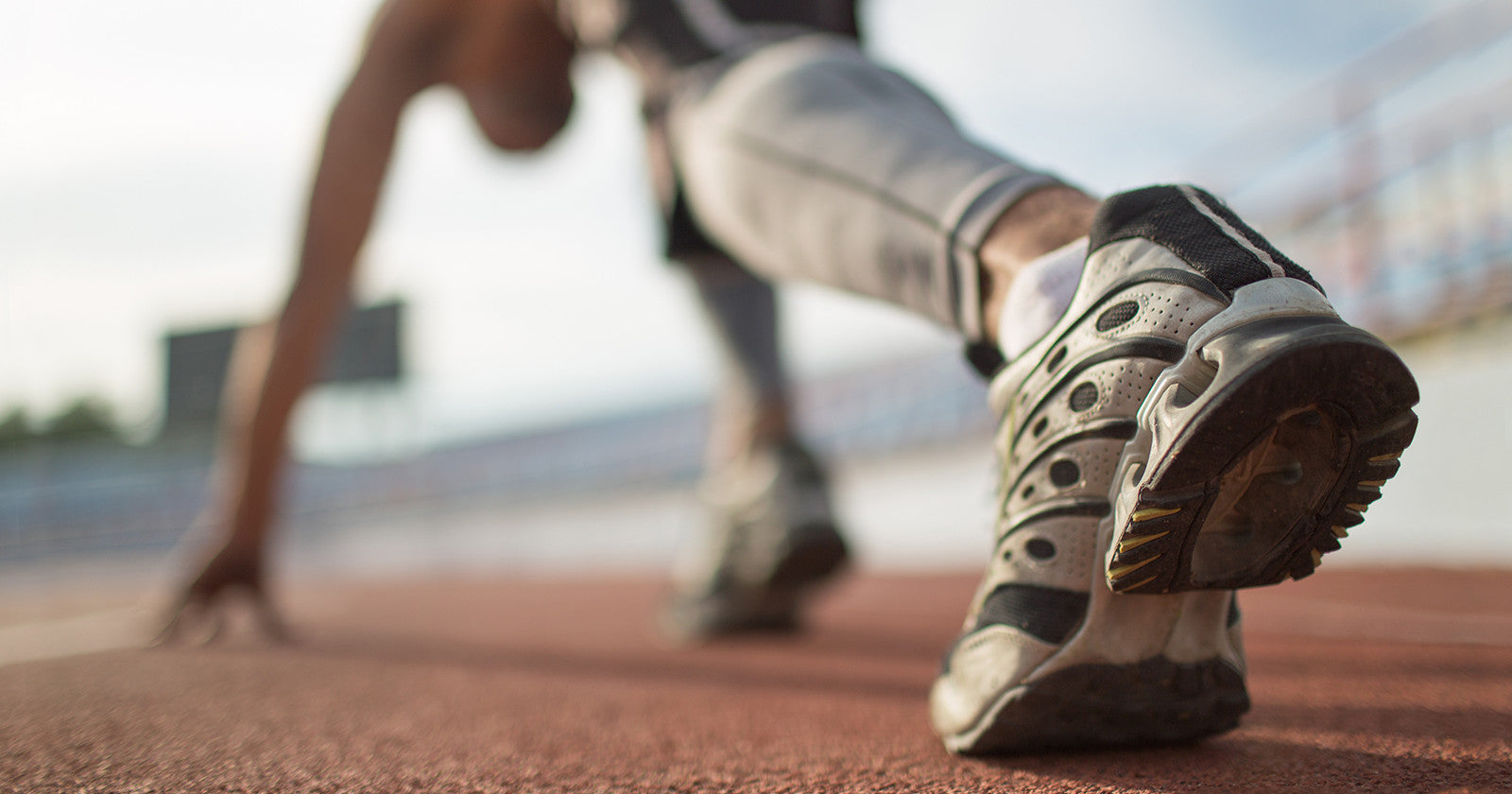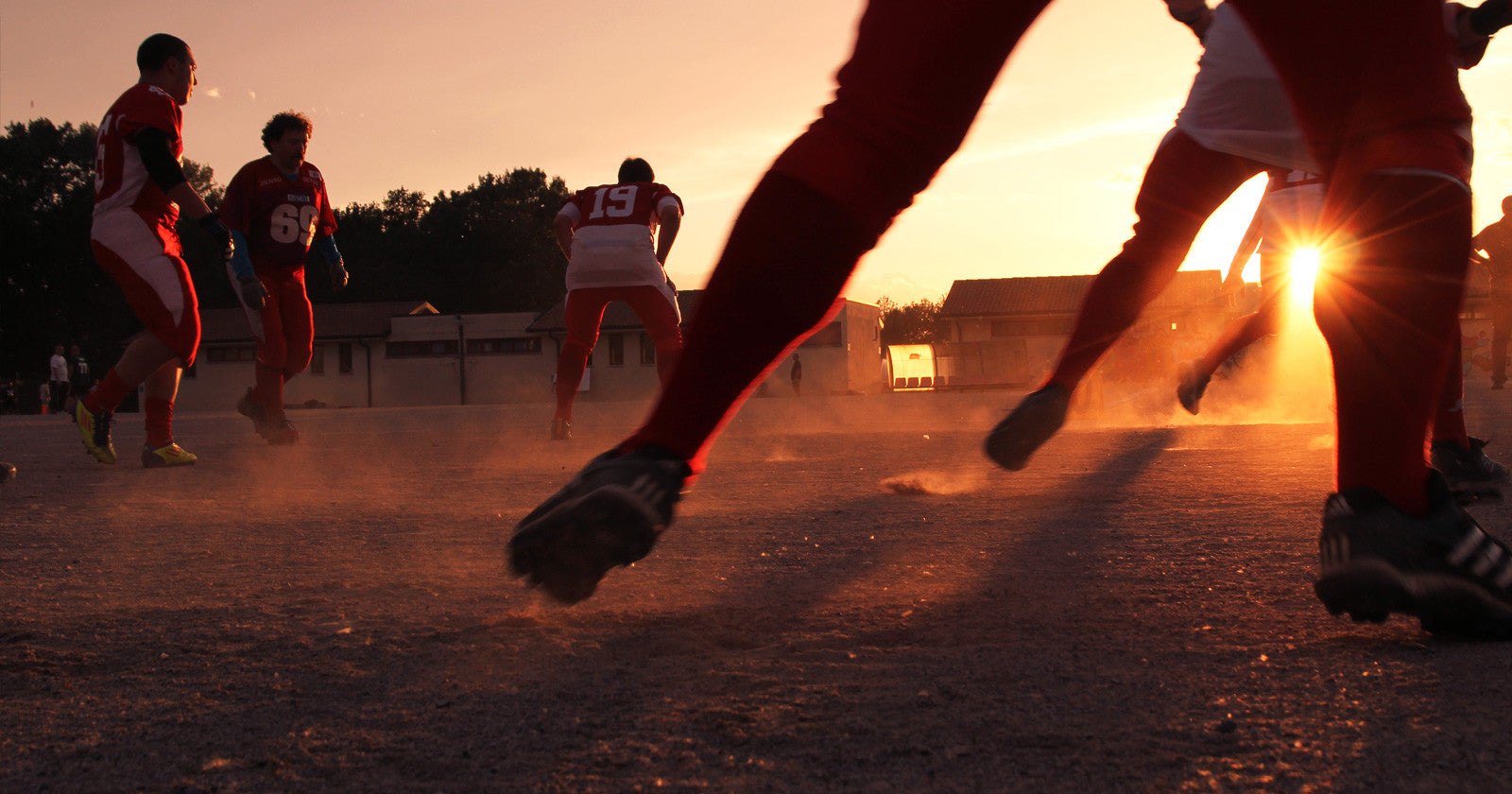The Science of Unstoppable: What Makes an Elite Athlete?

Mission Athletes are the best of the best. They’re all-stars and world champions, first-round draft picks and gold medalists, record breakers, game changers, and future hall-of-famers. Our innovative thermoregulation technology helps our athletes dig deeper, push harder, and feel stronger, but there’s more to their greatness—and yours.
Like any genius level of talent, the debate between “nature vs. nurture” is ever present when discussing elite athletes. Does it matter whether you’ve been practicing since you were in diapers? Is it possible for some people to discover untapped athletic talent later on in life? Do some athletes simply have a genetic predisposition to greatness?
Athletes who look ahead to the next level, be they high school all-stars on their way to college or farm league ball players sweating and bleeding to break into the majors, can indeed take their performance to new heights, but it requires the careful orchestration of numerous factors. Elite athletic performance depends on a complex web of internal mechanisms and conditions that must reach optimal levels before an athlete can go from good to great to greatest of all time. If it was easy, everyone would get their own Mission endorsement—but statistics show just how hard it is, and just how much hard work is required.
The NCAA reports that out of the nearly 8 million high school athletes in the United States, only about 6 percent will compete at NCAA schools. Of that small percentage who make it to the college level, an even smaller fraction will realize their goal of becoming professional athletes. Consider this: The NCAA estimates that DI-DIII college football players have a 1.6% chance of being drafted. Even among the pros, there are recognizable differences between elite performers like Dwayne Wade, Drew Brees, Serena Williams and everyone else.
The question, then, is what spurs an athlete to make the jump from high school to college, from college to the pros, and from the pros to the hall of fame? A recent study might give us our first clue.
In a study published in Sports Health, researchers at Duke University and Wichita State University attempted to define specific performance characteristics in elite athletes. Although the researchers acknowledge that athletic performance is affected by a wide range of physical and physiological factors, there were some interesting results that can help athletes focus their training to strengthen certain critical performance characteristics. For example, among elite-level ice hockey players like 2015 MVP finalist and Mission Athlete John Tavares, higher peak anaerobic power output was found to be an important predictor of higher round picks.
The scientific definition of “elite athletes” is so broad because each sport contains nuances. While some sports may have typical body types—like sumo wrestling and gymnastics—elite athletes can be strikingly (and even shockingly) different in terms of their physical appearance, attributes, and characteristics. What gives?
Elite athletes aren’t made in plaster molds. They come in all shapes and sizes, and no two share quite the same origin story, but there are certain behaviors, routines, and training modalities that help athletes unlock their full potential.
Even if you don’t have the sports gene or some physical abnormality that gives you an edge on the playing field, there are plenty of things you can control to reach the top of the sports mountain, DNA be damned.
Disciplined Mentality
A study published in the International Journal of Sport and Exercise Psychology found that elite-level competitors generally share a similar psychological profile. Specifically, the study found that mental “hardiness”—defined as commitment, belief in personal control over events, and an enjoyment of challenges and opportunities—is a key element that differentiates elite athletes from pretenders, pine riders, and role players. It’s easy to understand why.
Mental commitment helps athletes put in the time and effort necessary to study the game. Belief in personal control is akin to self-confidence, and there’s no denying that elite athletes have all the confidence in the world in their abilities. Finding joy and pleasure in life’s challenges helps the best of the best go above and beyond the breaking point where other athletes bow out. Combined, these mental disciplines give athletes an edge that can make the difference between sports glory and the agony of a close defeat.
Plenty of Sleep
Thinking about sacrificing an hour of sleep for an extra hour of practice? Better to hit the sheets instead. Sleep is a critical factor in reaching peak performance, and it’s one of the easiest for athletes to control. Prioritizing sleep over a long period of time is instrumental in aiding elite athletes in areas critical to game-time performance, including focus, decision-making, energy level, and muscle memory recall.
A study by Cheri Mah, a researcher in the Stanford Sleep Disorders Clinic and Research Laboratory, found that elite college-level basketball players were able to improve their performance on the court by simply increasing their total sleep time. Over the course of two seasons, Mah and a team of researchers worked with 11 players from the Stanford men’s basketball team. At the end of the study, which had the players sleep 10 hours each night for five to seven weeks, free throw percentages increased by 9 percent and 3-point field goal percentage increased by 9.2 percent compared to pre-study baselines.
Optimal sleep can help you perform your best when the whistle blows and the puck drops, and the human performance optimization experts at Fatigue Science have a few strategies that can help athletes achieve peak athletic performance through better sleep:
- Stick to a consistent wake and sleep time every day of the week
- Establish a pre-bedtime routine
- Avoid using technology within an hour of going to bed
- Don’t consume caffeine within four hours of bedtime
Balanced Nutrition
Elite athletes are finely-tuned machines, but without the right fuel even the most physically-gifted competitors don’t have what it takes to push themselves past the breaking point on guts and determination alone. That’s why proper nutrition is a cornerstone of elite performance, and why aspiring all-star athletes would do well to think about the food choices they make.
Researchers at the University of Calgary’s Sport Medicine Centre studied the dietary habits of 324 Canadian national-team athletes. The purpose of this study was to determine the nutritional composition and eating frequency for high-performance athletes during training. Although specific nutritional requirements can vary for different athletes, these results provide useful patterns you can emulate in your own diet plan.
- On average, the elite athletes involved in the study got 27% of their calories from fat, 20% from protein, and 5% from carbohydrates
- 57% of athletes consumed a morning snack, 71.6% consumed an afternoon snack, and 58.1 consumed an evening snack
- Athletes consumed approximately equal amounts of their daily calories (20-30%) at each main meal of the day (breakfast, lunch, dinner)
Optimal Thermoregulation
Thermoregulation is the body's ability to cool itself, and it’s a vital component in facilitating optimal athletic performance. The human body strives to maintain a core temperature as close as possible to 98.6° Fahrenheit. During strenuous physical activity, the body initiates physiological mechanisms in an attempt to prevent an excessive increase in core body temperature. This requires a significant expenditure of energy, which means less fuel for other internal mechanisms responsible for coordination, timing, strength, speed, and other factors athletes need to perform their best.
The body’s natural cooling response can also lead to excessive fluid loss, which can put stress on the circulatory system and lead to mental and physical fatigue that can hinder athletic performance. Fortunately, athletes can use instant cooling technology to minimize fluid loss, focus more energy on athletic competition, and stay in the game longer.
Mission Athletecare's professional athletic products help athletes control temperature and unlock performance with science-engineered thermoregulation technology. Shop products here, and get closer to elite athletic performance.
136 comments
-
buy hydroxychloroquine online on
is chloroquine phosphate over the counter hctz medication choloquine
-
cviznuuhecoh on
http://slkjfdf.net/ – Asuvunene Huobewiju jup.vnol.mission.com.ihr.py http://slkjfdf.net/
-
ewalekie on
http://slkjfdf.net/ – Atoxugr Ombephiv jel.vrjc.mission.com.rlk.ug http://slkjfdf.net/
-
buy generic cialis online with mastercard on
tadora 20 side effects buy generic cialis online with mastercard tadalafil side effects


malaria usmle chloroquine price in india hcqs tablet